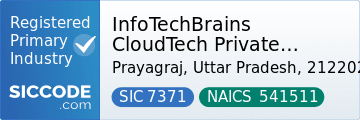Introduction
In today’s rapidly evolving business landscape, technology has become the backbone of organizational success. Enterprise Resource Planning (ERP) systems have emerged as critical tools for businesses seeking to streamline operations, enhance efficiency, and gain a competitive edge. While SAP has long been considered the gold standard, many organizations are now questioning whether it truly meets their unique needs.
The journey to finding the perfect ERP solution can feel like navigating a complex maze. With numerous alternatives flooding the market, businesses are increasingly looking beyond traditional giants like SAP to find more flexible, cost-effective, and user-friendly solutions. This comprehensive guide will explore the world of ERP software, helping you make an informed decision that could transform your business operations.
What is ERP and Why Does It Matter?
ERP software is more than just a technological tool – it’s a comprehensive system that integrates various business processes into a single, unified platform. At its core, ERP solutions aim to:
- Centralize business data
- Improve operational efficiency
- Enhance decision-making capabilities
- Streamline communication across departments
Core Functions of ERP Software
Modern ERP systems typically cover:
- Financial management
- Human resources
- Supply chain management
- Customer relationship management
- Inventory tracking
Benefits of Implementing ERP
Organizations that successfully implement ERP can expect:
- Reduced operational costs
- Improved data accuracy
- Enhanced productivity
- Better strategic planning
- Real-time business insights
Why Look Beyond SAP?
Despite its reputation, SAP comes with significant limitations that prompt businesses to explore alternatives.
Cost Challenges
Traditional SAP implementations can be prohibitively expensive, with:
- High initial investment
- Complex licensing models
- Significant ongoing maintenance costs
Complexity Barriers
SAP’s intricate system often requires:
- Specialized technical expertise
- Lengthy implementation processes
- Extensive training for staff
Customization Constraints
Many businesses find SAP’s rigid structure limiting, struggling with:
- Limited flexibility
- Difficulty adapting to unique business processes
- Slow response to changing business needs
Leading ERP Solutions in the Market
ERPNext – The Open-Source ERP
Lifetime Access, Own Server, Complete Security
A game-changing alternative for businesses seeking flexibility:
- Completely open-source
- Highly customizable
- Cost-effective implementation
- Strong community support
- Ideal for small to medium-sized businesses
- You can deploy in your server which becomes most secure
Salesforce Manufacturing Cloud (Read More Here)
Blending customer relationship management with comprehensive ERP capabilities:
- Cloud-based solution
- Seamless integration
- Scalable platform
- Advanced analytics
- Excellent for sales-driven organizations
Other Notable Alternatives
- Odoo: Modular approach with extensive customization
- Microsoft Dynamics 365: Robust integration with Microsoft ecosystem
- NetSuite: Cloud-based solution with strong financial management features
Choosing the Right ERP
Evaluating Business Needs
Consider these critical factors:
- Current business processes
- Future growth projections
- Specific industry requirements
- Integration capabilities
- Budget constraints
Budget Considerations
Key financial aspects to evaluate:
- Initial implementation costs
- Ongoing maintenance expenses
- Potential ROI
- Scalability pricing
- Hidden implementation costs
Scalability and Future Growth
Select an ERP that can:
- Adapt to changing business needs
- Support expansion
- Offer flexible configuration
- Provide continuous updates
- Integrate emerging technologies
Conclusion
Selecting the right ERP solution is a strategic decision that can significantly impact your organization’s efficiency and growth. While SAP remains a powerful platform, numerous alternatives offer more flexibility, cost-effectiveness, and user-friendly experiences.
Ready to find your perfect ERP solution? Book Free ERP Software Consultancy Session
At InfoTechBrains, we understand that selecting the right ERP software can be a daunting task. Our team of experts is here to help you navigate the complexities of ERP selection and implementation. Whether you’re in the manufacturing sector or any other industry, we can guide you in choosing the best ERP solution tailored to your needs.
Let’s embark on this journey together and transform the way your business operates!
Frequently Asked Questions
How long does ERP implementation typically take?
1-3 months, depending on complexity and organization size
What is the average cost of ERP software?
Ranges from $15,000 to $15000 varying by business size and complexity
Can ERP systems integrate with existing business tools?
Most modern ERP solutions offer robust integration capabilities
Is cloud-based or on-premise ERP better?
Cloud-based solutions are increasingly preferred for flexibility and cost-effectiveness
How do I measure ERP implementation success?
Track metrics like operational efficiency, cost reduction, and user adoption











